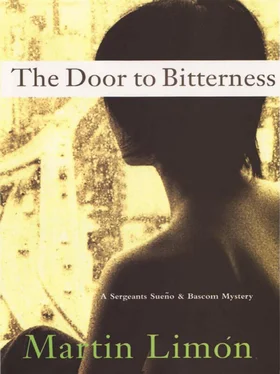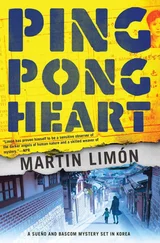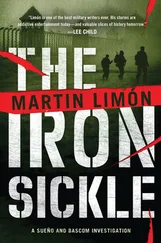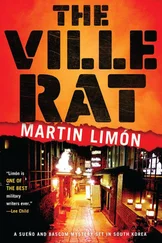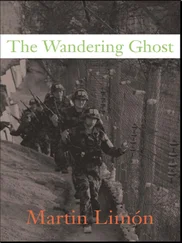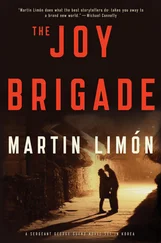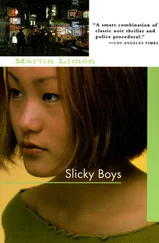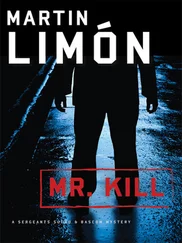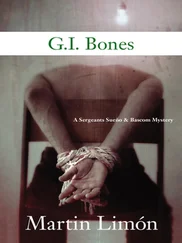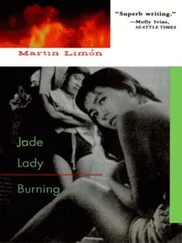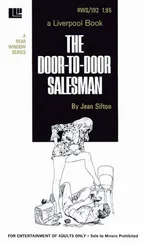Martin Limon - The Door to Bitterness
Здесь есть возможность читать онлайн «Martin Limon - The Door to Bitterness» весь текст электронной книги совершенно бесплатно (целиком полную версию без сокращений). В некоторых случаях можно слушать аудио, скачать через торрент в формате fb2 и присутствует краткое содержание. Жанр: Полицейский детектив, на английском языке. Описание произведения, (предисловие) а так же отзывы посетителей доступны на портале библиотеки ЛибКат.
- Название:The Door to Bitterness
- Автор:
- Жанр:
- Год:неизвестен
- ISBN:нет данных
- Рейтинг книги:4 / 5. Голосов: 1
-
Избранное:Добавить в избранное
- Отзывы:
-
Ваша оценка:
- 80
- 1
- 2
- 3
- 4
- 5
The Door to Bitterness: краткое содержание, описание и аннотация
Предлагаем к чтению аннотацию, описание, краткое содержание или предисловие (зависит от того, что написал сам автор книги «The Door to Bitterness»). Если вы не нашли необходимую информацию о книге — напишите в комментариях, мы постараемся отыскать её.
The Door to Bitterness — читать онлайн бесплатно полную книгу (весь текст) целиком
Ниже представлен текст книги, разбитый по страницам. Система сохранения места последней прочитанной страницы, позволяет с удобством читать онлайн бесплатно книгу «The Door to Bitterness», без необходимости каждый раз заново искать на чём Вы остановились. Поставьте закладку, и сможете в любой момент перейти на страницу, на которой закончили чтение.
Интервал:
Закладка:
Ernie and I kept up our search into the next day and the next. Still no dice. What I was worried about most was that I’d been stalked. I didn’t believe that the smiling woman and her confederates, whoever they were, had singled me out of the hundreds of drunken GIs by accident. I believed that they were aware I was a CID agent, carrying a badge and a gun. That’s what they were after. And that meant that they had plans for the badge and the gun. Almost certainly. Plans that included using them in the perpetration of another crime.
2
It was mid-morning of the third day, when Ernie and I returned to the CID office. Sergeant Riley popped up from his desk.
“Inchon,” he said, scribbling on a pad of paper. “The call just came in. You’re in a world of hurt now, Sueno.”
“What do you mean?”
“Here’s the name of the place. The Olympos Hotel and Casino. North of the Port of Inchon on the edge of the Yellow Sea. The KNPs tell me you can’t miss it.”
I glanced at the paper. “What’s some casino in Inchon have to do with me?”
“It’s been robbed.”
“So?” Ernie said. “That’s the KNP’s job. Not ours.”
“It’s your job now,” Riley said. “Somebody was shot. Point-blank.” He grinned a crooked-toothed grin. “With Sueno’s forty-five.”
Blood drained from my face.
Ernie leaned across Riley’s desk. “How in the hell could they know that? There hasn’t been enough time to run ballistics.”
“The thieves bluffed their way in using a badge,” Riley said. “A CID badge. With Sueno’s name on it.”
Ernie and I sprinted for the parking lot.
What I feared most had come true. My. 45 had been used in the commission of a crime.
I saw the face of the smiling woman, the woman who called herself Yun Ai-ja. I saw her staring at me with her half-mad eyes. She was smiling. Smiling broadly.
And the more she stared at me, the broader her smile became.
The City of Inchon sits on the coast of the Yellow Sea thirty kilometers due east of Seoul. It’s South Korea’s second largest port-after Pusan on the southernmost edge of the peninsula-and, as such, it provides much of the export-import capacity for the bustling capital city of Seoul. Inchon is most famous for the Inchon invasion, General Douglas MacArthur’s master stroke during the first few months of the Korean War. An amphibious landing that sliced the North Korean Communist supply lines and forced their army to retreat all the way to the Yalu River on the northern border with China.
Ernie pulled off the two-lane highway, crossed a ridge, and the city spread out before us. A cramped downtown area with a few skyscrapers-none more than five or six stories high-surrounded by a vast sea of tile-roofed homes and shops. The jumble of wood and mortar spread in every direction and jutted into the Bay of Kyongki. On the southern edge of the city sat the port with a few foreign ships, and about a half mile farther out, the huge stone-and-brick breakwater that vainly tried to hold back frothing white seas. If you ventured out into that green expanse and continued east, you’d eventually hit Shanghai and the teeming continent known as China, the Middle Kingdom.
Ernie kept both hands on the jeep’s big steering wheel and, chomping on a wad of ginseng gum, wound his way through the busy streets of Inchon. Eventually, we reached the city’s central train station. From there it was just a few yards to the Olympos Hotel and Casino. The whitewashed cement edifice sat perched like a conquering hero atop a hill overlooking the Yellow Sea.
We parked the jeep in the small front lot, avoided a few swooping sea gulls, and walked through the glass doors of the lobby’s foyer. Yellow-jacketed bellmen bowed as we entered, spouting the requisite “Oso-oseiyo.” Please come in.
We ignored them and trotted up the red-carpeted stairway with the neon sign pointing upward that said “Casino.”
When Ernie and I walked through the front portals of the Olympos Casino, everything stopped.
It wasn’t a casino like you think of in the States, with clanging slot machines and flashing neon lights. This place was more like a mausoleum. Our feet sank into plush red carpet as we entered a huge round hall. Chandeliers hung glittering from the ceiling, and unobtrusive classical music was being piped in through speakers.
Korean men in suits, both young and middle-aged, and young women, all wearing the blue dress uniform of an employee of the Olympos Casino-every one of them stopped, immediately, what they were doing. If they were talking, they froze in mid-sentence. If they were about to sit down, they immobilized themselves in mid-squat. If they were drinking tea, they held their cups poised awkwardly at their lips.
Scattered amongst the casino employees were a few men dressed in the khaki uniform of the Korean National Police, their eyes also riveted on us. Right hands slipped toward the big pistols they wore at their hips.
The only sound was Ernie’s gum clicking.
Without turning my head, I told him, “Don’t make any quick moves.”
Ernie frowned. “What the hell’s wrong?”
I didn’t answer because I didn’t know. Two tall Americans like Ernie and me, wearing coats and ties and visiting places where foreigners seldom tread, attract a lot of attention. I won’t say we were used to it, but we were resigned to it. But this was more than the usual reaction to a couple of out-of-place Miguks. This was fear.
The ceiling was two stories high. Across more plush carpeting, in the center of the room, a circle of green felt-covered blackjack tables surrounded a desk and telephone. Most of the employees were huddled there, as if for protection. In the back was a cocktail lounge on raised split-level flooring, and in a corner by themselves were the baccarat tables. A few disgruntled Asians sat there. From the singsong lilt of their conversation, I figured them to be tourists from Hong Kong. The other customers, all Korean, occupied a cocktail table in front of the bar. They were being interviewed by a khaki-clad Korean National Policeman. He hunched over the table, diligently jotting notes.
In back, beyond the baccarat tables, light shone through iron grating. The cashier’s cage. Its thick, iron-barred entrance door hung open.
I held my hands out to my sides and walked slowly toward the circle of blackjack tables. “Na nun, Mi Pal Kun,” I said. I’m from 8th Army.
A chubby-faced young woman in the uniform of the Olympos Casino began to whimper. Then cry. Two other women threw their arms around her, glaring at Ernie and me.
“I didn’t do it,” Ernie said softly. “Honest.”
One of the uniformed cops stepped forward and frisked me. He seemed surprised at my empty shoulder holster. I’m not even sure why I was still wearing it. Force of habit, I suppose. Or wishful thinking.
Then he frisked Ernie and found his weapon, and Ernie held up his CID badge and offered it to the cop. The cop took it, turned, and carried it over to a wooden table that had been set up near the cashier’s cage. Another cop sat behind the table. Ernie and I followed.
All of the casino employees, particularly the young women in their blue dresses, backed off as we walked by, some of them hugging themselves, their eyes wide, as if wary of any sudden movement we might make.
The cop at the table was a thin man whose narrow frame seemed lost in his neatly pressed uniform. He wore rectangular glasses, and a growth of straight white hair shot up from his round skull. His face was weathered, grim, beyond any hope of surprise. His name tag said Won. His rank insignia indicated that he was a lieutenant.
The Korean National Police are a militaristic organization. Uniforms, rank, salutes, basic training-all the things you expect to see in an army. In fact, the Korean government considers the KNPs to be an integral part of national defense. Along with solving day-to-day crime, they are also tasked with being on the lookout for North Korean Communist infiltrators. Infiltrators who routinely slip into the country to commit sabotage, murder, espionage, and various forms of creative mayhem.
Читать дальшеИнтервал:
Закладка:
Похожие книги на «The Door to Bitterness»
Представляем Вашему вниманию похожие книги на «The Door to Bitterness» списком для выбора. Мы отобрали схожую по названию и смыслу литературу в надежде предоставить читателям больше вариантов отыскать новые, интересные, ещё непрочитанные произведения.
Обсуждение, отзывы о книге «The Door to Bitterness» и просто собственные мнения читателей. Оставьте ваши комментарии, напишите, что Вы думаете о произведении, его смысле или главных героях. Укажите что конкретно понравилось, а что нет, и почему Вы так считаете.
